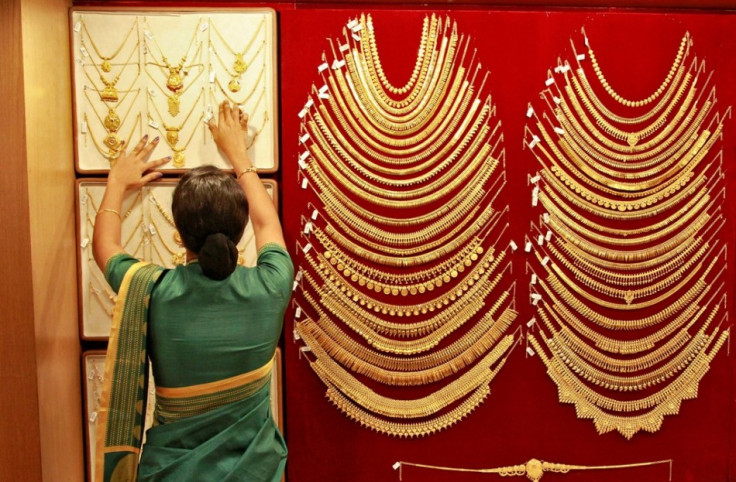Government Intervention in Indian Market Pulls Global Gold Demand Down 21%

World-wide demand for gold fell in the third quarter, due to a decline in investors' gold exchange traded fund positions and Indian government intervention in its domestic market.
The World Gold Council (WGC) said in its latest gold demand trends report that overall gold demand declined 21% to 869 tonnes worth $37bn (€28bn, £23bn).
Outflows from exchange traded fund (ETF) positions, were the main reason for the weaker quarterly total, according to the WGC. Net outflows of gold-backed ETFs declined to 119 tonnes in the third quarter from 402 tonnes in the second quarter.
Nevertheless, "demand at the consumer level was resilient", led by eastern markets' demand for gold jewellery, bars and coins. Jewellery demand increased 5% year on year to 487 tonnes and demand from technology sector rose 1% to 103 tonnes. Total bar and coin demand was up 6% to 304 tonnes.
Meanwhile, central bank net purchases declined in line with expectations. Net purchases were down 17% to 93.4 tonnes.
"Consistent with the first two quarters of 2013, the global gold market remains resilient, underpinned by the continued shift in demand from West to East, strong demand in consumer categories and solid central bank and technology sectors," Marcus Grubb, managing director, Investment at the WGC said in a statement.
"The growth we are seeing in jewellery, bars and coins in particular, demonstrates once again the unique diversity of gold demand, as different sectors increase in prominence at different points in the global economic cycle, clear evidence of the ebb and flow of what is an extremely liquid market."
India Demand Declines but Illicit Channels Active
Emerging Asian countries, especially India and China, have been playing a vital role in maintaining global gold demand steady.
In the third quarter, China's total consumer demand for jewellery, bars and coins, increased by 18% year on year to 210 tonnes. Meanwhile, they declined 32% in India to 148 tonnes.
The third largest economy in Asia is suffering from a huge current account deficit at about $90bn, primarily due to its ever-rising oil and gold import bills. The country looks to bring the deficit down to $70bn by the end of the current fiscal year.
India's gold imports totalled $54bn for the fiscal year ended on 31 March, as the people there buy about 2.3 tonnes of gold per day on average.
In order to rein in on the situation, the Reserve Bank of India had earlier hiked import duty on gold to a record 10% and tightened rules for finance companies which lend against gold. The measures had the intended effect of substantially supressing demand, according to the WGC.
However, the council noted that Indian consumers' appetite for gold has not waned and they might be using illegal channels to bring more gold inside the country.
"We have seen some increases in demand in other countries which have close links with India, some of which may be making its way back to the country through illicit channels, which have reopened in recent quarters following a long period of inactivity," Grubb added.
© Copyright IBTimes 2025. All rights reserved.






















